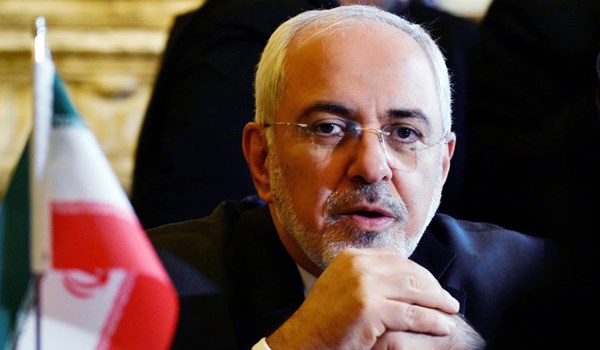
TEHRAN (FNA)- Iranian Foreign Minister Mohammad Javad Zarif ruled out any relation between the visit to Tehran by Director-General of the International Atomic Energy Agency (IAEA) Rafael Mariano Grossi and the so-called trigger mechanism that has been requested by the US to re-impose UN Security Council on Iran.
“The visit of Grossi has nothing to do with the United States’ recent attempt to apply the so-called snapback mechanism to return UN sanctions against Tehran,” Zarif said on Monday, adding, “We will not allow the US and the Israeli regime, which possess nuclear weapons in the region and have already used such weapons, to ridicule the IAEA’s goals.”
Referring to the recent failure of the US at the UN Security Council to re-impose illegal sanctions on Iran, he said that 13 out of 15 UNSC member states are against such a move.
The top diplomat also touched upon the US’ unilateral and illegal pullout from the nuclear deal in 2018 and its lack of eligibility to use the deal, saying, “They [UNSC member states] are not only against this move, but they also believe the US has no right to enter this issue.”
Once again, Zarif rejected any allegations of non-cooperation with the IAEA, insisting, “The Islamic Republic’s cooperation with the agency is based on transparency. We have never been after weapons of mass destruction.”
Grossi said in a post on his twitter page that he is due to travel to Iran.
“I will travel to Tehran on Monday for meetings with Iranian authorities to address outstanding questions related to safeguards in Iran. I hope to establish a fruitful and cooperative channel of direct dialogue. It is necessary,” he wrote.
In relevant remarks, Iranian Ambassador and Permanent Representative to Vienna-Based International Organizations Kazzem Qaribabadi said that the Monday visit by Director-General of the International Atomic Energy Agency (IAEA) Rafael Mariano Grossi to Tehran was not a US request, dismissing speculations that the trip is related to the trigger mechanism.

“As said before, IAEA Director-General Rafael Mariano Gross will travel to Iran tomorrow and will hold meetings with the Iranian officials on Tuesday and Wednesday,” Qaribabadi wrote on his Instagram page on Sunday.
“Iran’s trust in the IAEA has been harmed in recent months. It is necessary that the director-general’s visit to Iran will build trust,” he added.
Qaribabadi said that the visit is not related to the trigger (snapback) mechanism pursued by Washington to return all UN sanctions against Iran, and added, “The visit has not been demanded by the US either and will take place upon an invitation by the Iranian side.”
“We do not allow others to manage relations between the Agency and Iran, specially in the current sensitive conditions,” he underlined, calling on the IAEA to keep loyal to the three principles of impartiality, independence and professionalism and not to act beyond the standards and independent data in the safeguards issues in a bid to remove the misunderstandings and guarantee continued cooperation.
Qaribabadi had said on Saturday that Grossi is due to travel to Iran in coming days.
“In line with the current interactions and cooperation between Iran and the Agency and after receiving invitation from the Islamic Republic of Iran, IAEA Director-General Rafael Grossi will travel to Iran in the current week (Iranian week which starts on Saturday),” Qaribabadi said.
“Iran is one of the main partners of the Agency and we hope that the meeting will lead to the implementation of mutual cooperation,” he added.
In relevant remarks late last month, Iranian Deputy Foreign Minister Abbas Araghchi said his country would continue its peaceful nuclear program in compliance with the IAEA rules, emphasizing that Tehran has always removed ambiguities regarding its nuclear program.
Araghchi added that Iran is a member of Non-Proliferation Treaty (NPT) and its nuclear program is carried out in coordination with IAEA regulations.
“Whenever our interests regarding the Nuclear Deal (Joint Comprehensive Plan of Action) are served we will be ready to return to all our JCPOA commitments,” he went on to say.
As an accountable country, Iran has removed all ambiguities and misinformation regarding its nuclear program, the official added.
Pointing to the US illegal withdrawal from the JCPOA, he reiterated that Iran has fully lived up to its commitment regarding the JCPOA, but, other parties [the US and Europe] have reneged on their obligations.

No comments:
Post a Comment